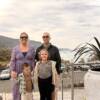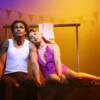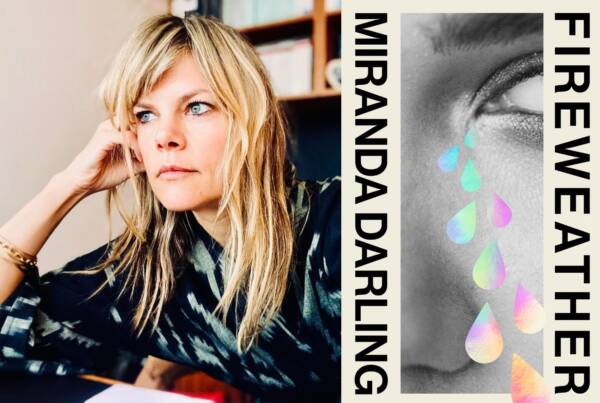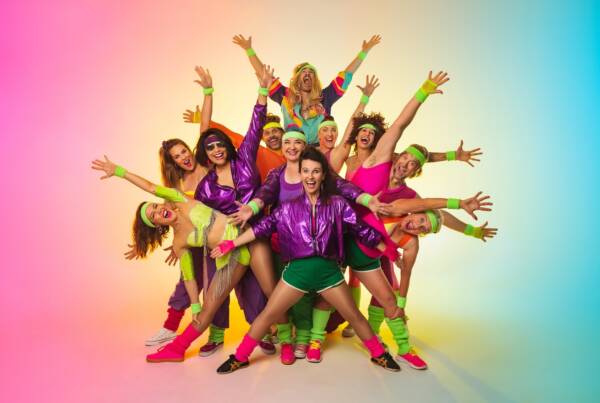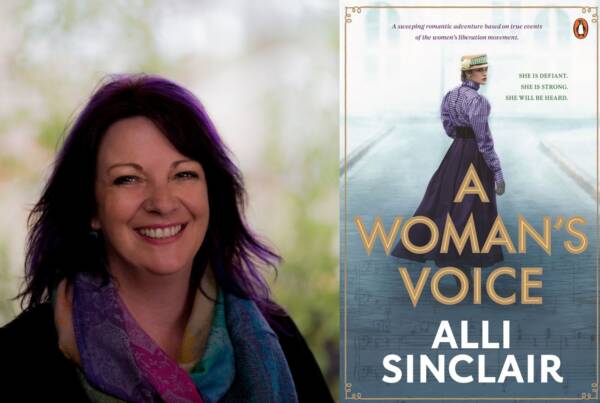Interview of Minnie Darke by Freya Bennett
In Three Juliets, bestselling author Minnie Darke delivers a deeply personal and beautifully woven story about mothers, daughters, and the ties — both of blood and of heart — that shape our lives. Drawing on her own experiences as a daughter, a mother, and a witness to the complexities of adoption, Minnie explores how love, loss, and longing can echo across generations. In this conversation, she shares the emotional heart of her novel, her love of life’s quiet “what if” moments, and the enduring power of chosen family.
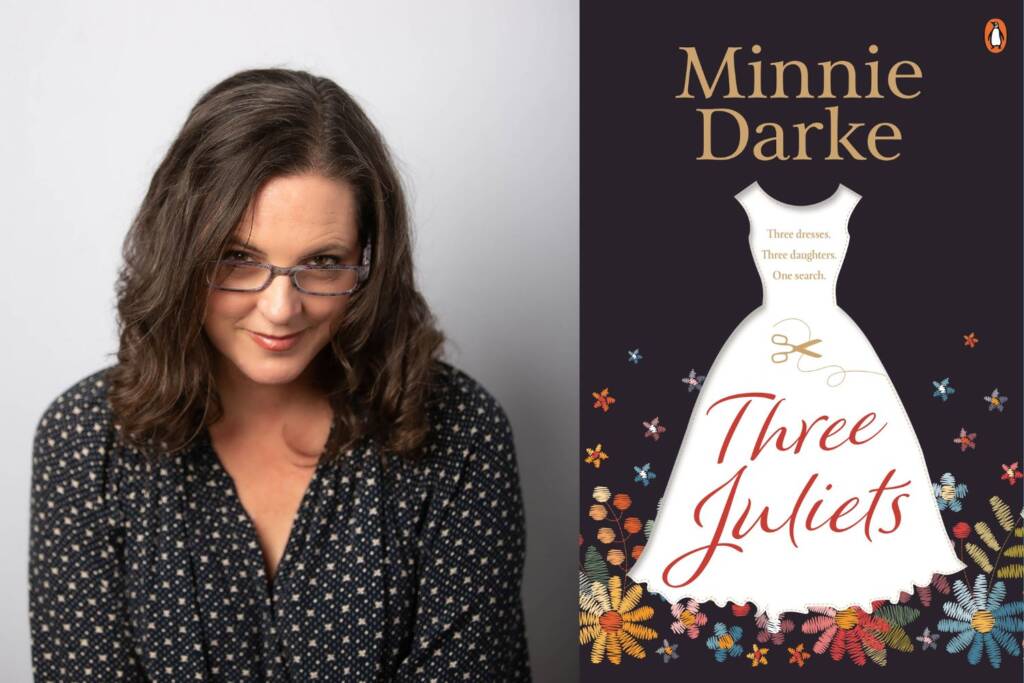
Mother-daughter relationships are at the heart of this novel. What drew you to explore the complexities of both biological and chosen family in this way?
I’m a daughter, and a granddaughter, and I’m a mother of two daughters (plus one son). The relationship webs between us all are a huge part of my life, so I’m working with subject matter that’s close to my heart and feels very immediate in my experiences. While adoption isn’t my personal story, I was born in 1972, which was the peak year for adoption in Australia with almost 10,000 babies being adopted in that year. Inevitably, adoption touched my extended family, and my friendships. Many of my friends are adoptees and over the years I’ve borne witness to their stories and their emotions, and also watched from the sidelines as they’ve experienced reunions – some of which have been joyful, others not so much. I also wanted, as your question suggests, to write about ‘chosen’ family, because if we’re lucky, and if we invest in our relationships, we can nurture friendships that come to feel as close as blood ties, and these connections can immensely enrich our lives.
The story spans multiple perspectives and timelines. How did you approach plotting and structuring a narrative that juggles so many threads without losing the emotional core?
I can reveal that a lot of whiteboard markers die in the making of my novels! Multiple perspectives and timelines are absolutely my thing. I love other books and movies with those features, and they show up my earlier novels Star-crossed (about a journalist who changes the horoscopes in pursuit of love) and The Lost Love Song (about a song that touches many people’s hearts on its journey around the world). For me, it’s often the way events unfold through character networks, and across time, that creates the emotional core of a novel. I love to watch – and create – those ripple events that demonstrate the ongoing impacts of certain events, and show just how connected to each other we truly are.
You’ve captured 1980 so vividly — what kind of research did you do to bring that era to life, particularly in terms of fashion, culture, and language?
I was eight years old in 1980, but I was already an avid consumer of culture. Both my grandmothers were readers of women’s magazines, so my childhood was full of Women’s Weeklies, New Ideas, Family Circles and, a little later, I scored a pile of Dolly magazines from the early 1980s from a family friend. When we’re young, our brains are capable of absorbing so much detail, and mine just happened to soak up a lot of feature articles, fashion spreads, astrology columns, and advertisements. I suppose you could say I did this research a long way ahead of time, before I even knew I was doing it.
Claudie Miller is a fascinating character — both successful and haunted by her past. Was she based on anyone in particular, or did she evolve organically as you wrote?
In terms of her professional standing, I saw Claudie as a kind of Enid Gilchrist figure. Gilchrist was a designer of children’s clothing whose patterns were very popular through the middle of the 20th century in Australia. I imagined Claudie having the same sort of reach and popularity in the 1970s and 1980s. In terms of her personal life, though, and the way her past haunts her, she is an invention drawn from the experiences of thousands of Australian women. Although I’m an only child, like Claudie in Three Juliets, I come from a big, extended family – one that has both lost members, and gained them, through adoption. I grew up thinking I was the eldest of my generation on my mother’s side of the family, but I wasn’t – there was a cousin we didn’t find for decades. Claudie grew out of personal experience, and also out of reading hundreds of personal accounts written by women who experienced forced adoption. While each of these accounts is unique, when you put them together, they build a picture of a very organised social machine for punishing young women who were simultaneously pregnant and unmarried.
What do you hope readers take away from this story about identity, connection, and the impact of our choices?
I hope readers of Three Juliets can see that adoption is a complex and multi-faceted issue, which affects people and relationships in a range of ways. I wanted the novel to reflect the diversity of adoption experiences, while at the same shining a light on the particular horror that was forced adoption. Like other shameful chapters in our history, the era of forced adoption relied on a mutual and tacit agreement to keep quiet about injustice. For some people, that went as far as participating in those injustices – covering birthing women’s faces so they never even saw their babies, drugging young women when they were to sign adoption papers, injecting them to prevent their milk-flow, refusing them pain relief, keeping them ignorant of their legal rights. We’re in another era of world history, right now, when we may find ourselves having to choose between keeping our heads down and following the crowd, or standing up and doing what is morally right.
Your novels often explore fate, coincidence, and the quiet magic of life’s turning points. How do those themes continue to influence your storytelling, and why do you think readers connect so strongly with them?
Ah, what a lovely question. It’s true – I’m quite fascinated by that quiet magic. But, aren’t we all? Who doesn’t think … what would my life have been like if I’d partnered up with that person instead of this person? What if I’d taken that job? Gone on that overseas trip? What would I do if I could be sixteen again, but knowing then what I know now? What would I do if I could have my grandmother back on earth for a day? What if ‘What if’ is the novelist’s rocket-fuel, but it’s also a very human question to ask.
Three Juliets is out now through Penguin.

